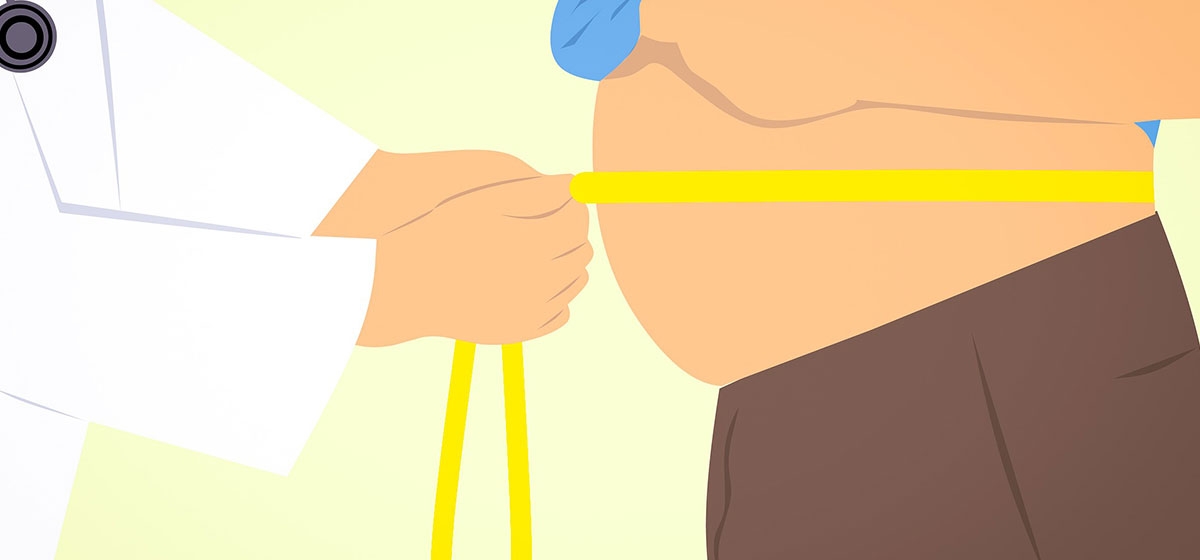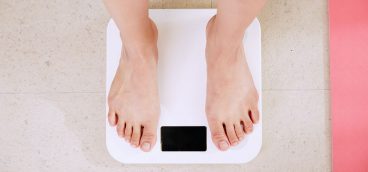
Question: “I am a middle-aged man who has never had a weight problem until recently. Over the past two years I have gained about 10 pounds even though my diet has not really changed. I try to eat healthy and low-fat when I can and have been doing so for years. I do not understand why I am gaining weight, and not sure what to do to stop it!”
You are describing a situation that many of us face at one point or another in our lives—a gradual change in body shape coupled with slow and steady weight gain. According to the Centers of Disease Control (CDC), more than 90 million American adults are classified as overweight or obese. The prevalence of obesity is higher among middle-aged adults (42.8%) than among younger adults (35.7%), so as you indicated, the weight gain typically occurs as we get older. In most cases, the process occurs slowly but steadily, almost unnoticeable, and after the fact we wonder how and when did this happen! For example, in your case you gained 10 pounds over a two-year period. That translates into an average gain of less than ½ pound per month: hardly a significant change in body weight, but obviously it adds up. For that reason, the process is commonly referred to as “creeping obesity”—it creeps up on you.
The first step in addressing the issue is to understand the reasons why we put on the extra pounds. Weight gain is basically the result of an energy imbalance. If you consume more calories (energy) than needed to fuel the body, the excess will be converted to fat and stored for future use. From an evolutionary standpoint, our ability to deposit body fat is a beneficial survival mechanism that aided prehistoric humans in times when food was scarce. In today’s world a lack of food is not an issue for most Americans.
There are approximately 3,500 calories in one pound of stored body fat. Since you gained about 10 pounds over the past 24 months, that means you have consumed about 35,000 calories more than required over that period. While that may sound like a lot of calories, it actually averages only about 50 calories a day above and beyond your energy needs. That is approximately the number of calories in a small chocolate chip cookie and illustrates how seemingly insignificant changes in diet can result in significant weight gain over time. Thankfully, the process works just as effectively in reverse. Create a slight caloric deficit each day and over time you can gradually lose weight in the same manner that you gained it.
That said, there are other possible reasons why you have been slowly gaining weight. If your activity levels have declined over the past couple of years, you may require fewer calories to meet energy needs today than you did then. Ask yourself the following questions: Are you less physically active in your job than you were a few years ago? Are you paying someone to mow your lawn instead of doing it yourself, as you did a couple of years ago? Do you no longer take the dog for a two-mile walk each day? Although these activities are not considered formal workouts, they do burn calories. Eliminating even 50 or 100 calories of energy burn a day can have significant impact on your body weight over time.
Another possible factor that can contribute to slow and steady weight gain as we get older is loss of muscle mass. Muscle tissue requires energy (calories) to maintain itself, so when you lose muscle, your energy needs decrease. Resting metabolism slows, and as a result, you require fewer calories to maintain your body weight. If you are consuming about the same number of calories today as you did a couple of years ago but your body requires less energy now than previously due to loss of muscle tissue, then slowly but surely you will add extra pounds. It is a fact of life that most of us gradually lose muscle mass as we get older unless we take specific action to prevent the loss. That specific action would be weight or strength training. Add muscle to your frame and your resting metabolic rate will increase, which means your will be burning additional calories 60 minutes an hour, 24 hours a day, 7 days a week.
The solution to your present situation is pretty straight forward. To reverse slow and steady weight gain, consume fewer calories than are required to meet your energy needs. The first step is to analyze your eating habits and find ways to eliminate needless calories here and there. You can do so by making better food choices, changing how you prepare foods (baked rather than fried), adjusting which toppings (low-cal) you put on foods, etc. At the same time, increase your activity levels to burn additional calories. Walking, biking, and yard work all burn calories. Finally, make the effort to strength train a couple of days per week. This will aid in preventing muscle loss and improve the quality of life as you get older.




